0
Report
Community: Postsecondary
May 2, 2019
Innovative public housing authorities (PHAs) are collaborating with college access partners and community colleges to increase postsecondary educational achievement for low-income residents and college students experiencing homelessness. This report elevates 11 shared learnings from a recent convening of these five pioneering PHAs and their postsecondary collaborators, and offers a series of recommendations to policy makers, PHAs, and philanthropic organizations seeking to develop emerging cross-sector collaborations between housing and education organizations. The report also includes an overview of the federal policies that support and limit postsecondary achievement for students served by PHAs, and profiles of the five partnerships: CHA and partners City Colleges of Chicago and One Million Degrees; CMHA and partner Columbus State Community College; HACLA and partner Southern California College Access Network (SoCal CAN); LMHA and partner Family Scholar House; and THA and partner Tacoma Community College.
Authored by: Abra Lyons-Warren for CLPHA
Topics: CLPHA, Education, Housing, Legislation & Policy, Low-income, Partnerships, Post-secondary, Stability
 Shared by Abra Lyons-Warren
Shared by Abra Lyons-Warren
Abra Lyons-Warren posted a
on Oct 6, 2020
Abra Lyons-Warren for CLPHA
Innovative public housing authorities (PHAs) are collaborating with college access partners and community colleges to increase postsecondary educational achievement for low-income residents and college students experiencing homelessness.
0
Report
Community:
Jun 6, 2019
Trends in Housing Assistance and Who it Serves
Authored by: PAHRC
Topics: Community development, Disabilities, Education, Funding, Health, Homelessness, Housing, Legislation & Policy, Low-income, Partnerships, Research, Seniors, Workforce development, Youth
 Shared by Keely Stater
Shared by Keely Stater
Keely Stater posted a
on Sep 10, 2019
Trends in Housing Assistance and Who it Serves
0
News Article
Community:
Jun 12, 2019
About half of the student body at one Ohio elementary school has witnessed drug use at home. Educators spend time every day teaching the children how to cope.
Authored by: Dan Levin for The New York Times
Topics: Child welfare, Early childhood, Education, Health, Substance abuse, Youth
 Shared by Housing Is
Shared by Housing Is
Housing Is posted a
on Jun 13, 2019
Dan Levin for The New York Times
About half of the student body at one Ohio elementary school has witnessed drug use at home. Educators spend time every day teaching the children how to cope.
0
Report
Community:
May 1, 2019
Community eligibility allows high-poverty schools and school districts to offer free meals to all students, and it eliminates the need for household school meal applications. A key piece of the Healthy, Hunger-Free Kids Act of 2010, community eligibility was phased in a few states at a time before it was made available to schools nationwide in the 2014–2015 school year.
Authored by: Food Research & Action Center (FRAC)
Topics: Child welfare, Education, Food insecurity, Legislation & Policy, Low-income, Nutrition, Out-of-school time, Research
 Shared by Housing Is
Shared by Housing Is
Housing Is posted a
on Jun 3, 2019
Food Research & Action Center (FRAC)
Community eligibility allows high-poverty schools and school districts to offer free meals to all students, and it eliminates the need for household school meal applications.
0
News Article
Community:
May 6, 2019
Policymakers, academics and criminal-justice reformers all agree that access to education is both a front-end and back-end tool that decreases crime, increases social and economic mobility and supports informed, engaged citizenship. Not only is high-quality education effective, it is a lot less expensive than the cost of mass incarceration.
Authored by: Vivian Nixon for The Hill
Topics: Criminal justice, Education, Legislation & Policy
 Shared by Housing Is
Shared by Housing Is
Housing Is posted a
on May 30, 2019
Vivian Nixon for The Hill
Policymakers, academics and criminal-justice reformers all agree that access to education is both a front-end and back-end tool that decreases crime, increases social and economic mobility and supports informed, engaged citizenship.
0
Report
Community:
Apr 25, 2019
Access to affordable child care can be a major barrier for low-income parents who want to participate in education and training activities to gain skills or obtain employment. Child care assistance from the Child Care and Development Fund (CCDF), the federal block grant that funds states to provide child care assistance to low-income families, can help alleviate this barrier and make it easier for low-income parents to participate in activities that improve their skills and lead to stable employment with adequate pay. However, the CCDF eligibility requirements and priorities for service are set at the state level, and states make different decisions about how to allocate scarce CCDF resources, so access to and use of CCDF subsidies for parents seeking education and training varies across states.
Authored by: Semhar Gebrekristos and Gina Adams for The Urban Institute
Topics: Child welfare, Early childhood, Education, Legislation & Policy, Post-secondary, Research, Workforce development
 Shared by Housing Is
Shared by Housing Is
Housing Is posted a
on May 30, 2019
Semhar Gebrekristos and Gina Adams for The Urban Institute
Access to affordable child care can be a major barrier for low-income parents who want to participate in education and training activities to gain skills or obtain employment.
0
News Article
Community:
Mar 18, 2019
It’s a prescription guaranteed to develop healthy brains, refine motor skills and prepare kids for school, doctors say. But few parents expect a physician to hand their children a book at their first wellness checkup at Nationwide Children’s Hospital in Columbus.
Authored by: Alissa Widman Neese for The Columbus Dispatch
Topics: Child welfare, Early childhood, Education, Health, Literacy, Low-income, Partnerships
 Shared by Housing Is
Shared by Housing Is
Housing Is posted a
on May 30, 2019
Alissa Widman Neese for The Columbus Dispatch
It’s a prescription guaranteed to develop healthy brains, refine motor skills and prepare kids for school, doctors say. But few parents expect a physician to hand their children a book at their first wellness checkup at Nationwide Children’s Hospital in Columbus.
0
Report
Community:
Recent research has begun to focus on the impact of housing instability, in its many forms, on child health and development. It is hypothesized that young children are at greater risk of adverse effects of living environments, as this time period serves as a critical window for establishing socialization and learning habits. Additionally, the effects of housing instability may be compounded when combined with other challenges faced by low-income families, such as lack of resources. Previous studies have found that housing instability is associated with deficits in overall academic achievement, emotional regulation, and verbal abilities.
Authored by: International Public Health Journal
Topics: Child welfare, Education, Health, Homelessness, Housing, Research
 Shared by Housing Is
Shared by Housing Is
Housing Is posted a
on May 9, 2019
International Public Health Journal
Recent research has begun to focus on the impact of housing instability, in its many forms, on child health and development.
0
News Article
Community:
Apr 30, 2019
Jonathan Rose is on a mission is to develop "communities that enhance opportunity for all." As the Founder and President of Jonathan Rose Companies, his firm’s work has touched many aspects of community health; working with cities and not-for-profits to build affordable and mixed-income housing, cultural, health and educational infrastructure, and advocates for neighborhoods to be enriched with parks and open space, mass transit, jobs, and healthy food
Authored by: Afdhel Aziz for Forbes
Topics: Education, Health, Housing, Partnerships, Place-based
 Shared by Housing Is
Shared by Housing Is
Housing Is posted a
on Apr 30, 2019
Jonathan Rose is on a mission is to develop "communities that enhance opportunity for all." As the Founder and President of Jonathan Rose Companies, his firm’s work has touched many aspects of community health; working with cities and not-for-profits to build affordable and mixed-income ho
0
News Article
Community:
Apr 21, 2019
An EdSource analysis of teacher salaries and rents reveals just how crushing California’s housing crisis has become for many teachers.Teachers at the bottom of the salary scale working in coastal or metro areas of the state are being shut out of affordable housing. Many are spending more than 30% of their salary on rent, the federal cutoff for affordable housing.
Authored by: Diana Lambert and Daniel Willis for The San Francisco Chronicle
Topics: Education, Housing, Low-income, West Coast
 Shared by Housing Is
Shared by Housing Is
Housing Is posted a
on Apr 25, 2019
Diana Lambert and Daniel Willis for The San Francisco Chronicle
An EdSource analysis of teacher salaries and rents reveals just how crushing California’s housing crisis has become for many teachers.Teachers at the bottom of the salary scale working in coastal or metro areas of the state are being shut out of affordable housing.
0
Report
Community:
Apr 1, 2019
College Promise programs aim to make students believe they can afford college, and to give them the opportunity to go to college and earn degrees without taking on significant debt. At the core of all College Promise programs is a scholarship: All eligible College Promise students receive scholarships that may cover up to 100 percent of tuition and fees at postsecondary institutions. Additionally, many Promise programs are designing, implementing, and refining additions to their models by providing students with support services once they enroll in college. MDRC’s College Promise Success Initiative (CPSI) provides important lessons for Promise programs interested in including such services.This brief shares early lessons from CPSI about how different Promise programs are designing, implementing, and refining their models with embedded student services in mind.
Authored by: Jacklyn Willard, Andrea Vasquez, and Marco Lepe for MDRC
Topics: Education, Low-income, Post-secondary, Research, Youth
 Shared by Housing Is
Shared by Housing Is
Housing Is posted a
on Apr 24, 2019
Jacklyn Willard, Andrea Vasquez, and Marco Lepe for MDRC
College Promise programs aim to make students believe they can afford college, and to give them the opportunity to go to college and earn degrees without taking on significant debt.
0
Report
Community:
Apr 20, 2019
Detroit’s Promise program was designed to encourage college attendance among some of the nation’s most underserved students, those in Detroit, Michigan. The next step was to help students succeed once they enrolled in college. To do so, MDRC and the Detroit Promise partnered to create the Detroit Promise Path, an evidence-based student services program. Detroit Promise Path students begin meeting with college coaches in the late summer before their first semester of college. They are given an incentive to attend coaching meetings in the form of a monthly gift card refilled with $50 each month that they meet with coaches as directed. The program lasts all year, including summer semesters, when students are encouraged to enroll in summer classes or engage in a local summer jobs program. The entire operation is supported by a management information system.
Authored by: MDRC
Topics: Education, Low-income, Midwest, Post-secondary, Research
 Shared by Housing Is
Shared by Housing Is
Housing Is posted a
on Apr 24, 2019
Detroit’s Promise program was designed to encourage college attendance among some of the nation’s most underserved students, those in Detroit, Michigan. The next step was to help students succeed once they enrolled in college.
0
News Article
Community:
Mar 19, 2019
For 17 years, physicians, nurse practitioners and pediatric residents at our hospital, and presently, at more than 80 locations throughout the region, have been participating in Reach Out and Read of Greater Philadelphia (www.reachoutandreadphilly.org), a simple yet profound way to harness the power of a book to potentially alter a child’s health trajectory.
Authored by: Daniel Taylor for The Inquirer
Topics: Early childhood, East Coast, Education, Grade-level proficiency, Health, Literacy, Low-income
 Shared by Housing Is
Shared by Housing Is
Housing Is posted a
on Apr 18, 2019
Daniel Taylor for The Inquirer
For 17 years, physicians, nurse practitioners and pediatric residents at our hospital, and presently, at more than 80 locations throughout the region, have been participating in Reach Out and Read of Greater Philadelphia (www.reachoutandreadphilly.org), a simple yet profound way to harness the power
0
News Article
Community:
Feb 26, 2019
More than half of students in the U.S. go to segregated or "racially concentrated" schools, according to the report. Those are schools in which more than three-quarters of students are white, or more than three-quarters are nonwhite. Researchers found that high-poverty districts serving mostly students of color receive about $1,600 less per student than the national average. That's while school districts that are predominately white and poor receive about $130 less.
Authored by: Clare Lombardo for NPR
Topics: Education, Funding, Legislation & Policy, Racial inequalities, Research
 Shared by Housing Is
Shared by Housing Is
Housing Is posted a
on Apr 4, 2019
More than half of students in the U.S. go to segregated or "racially concentrated" schools, according to the report. Those are schools in which more than three-quarters of students are white, or more than three-quarters are nonwhite.
0
News Article
Community:
Apr 4, 2019
The nonprofit LIFT Orlando and AdventHealth have started construction on a “first of its kind” early learning center in the long-neglected West Lakes neighborhood south of Camping World Stadium, with an opening expected by August. The center will provide basic education as well as health and wellness programs, an on-site doctor or advanced nurse practitioner, mental health counseling and other services beyond the classroom. It can enroll up to 220 children from age 6 weeks to 5 years, with half of the openings reserved for kids from the West Lakes area, who will be accepted regardless of their families’ ability to pay.
Authored by: Kate Santich for Orland Sentinel
Topics: Child welfare, Early childhood, Education, Health, Low-income, Partnerships, Place-based
 Shared by Housing Is
Shared by Housing Is
Housing Is posted a
on Apr 4, 2019
Kate Santich for Orland Sentinel
The nonprofit LIFT Orlando and AdventHealth have started construction on a “first of its kind” early learning center in the long-neglected West Lakes neighborhood south of Camping World Stadium, with an opening expected by August.
0
News Article
Community:
Mar 18, 2019
The Department of Education reports more than 29,000 kids in North Carolina were considered homeless in the 2016-2017 school year. About three-quarters of those are living with other families because it’s too expensive to live on their own. According to Shantiqua Neely, it’s not necessarily because people don’t have jobs. She’s the executive director at A Child’s Place, the organization helps homeless CMS students and families. She said it’s because rent is too expensive.
Authored by: Alex Olgin for WFAE 90.7
Topics: Child welfare, Education, Homelessness, Housing, Legislation & Policy, Low-income
 Shared by Mica O'Brien
Shared by Mica O'Brien
Mica O'Brien posted a
on Mar 26, 2019
The Department of Education reports more than 29,000 kids in North Carolina were considered homeless in the 2016-2017 school year. About three-quarters of those are living with other families because it’s too expensive to live on their own.
0
News Article
Community:
Mar 13, 2019
Universal meals allow schools to build the program into their overall curriculum, "creating a learning lab for healthy eating and a mealtime experience where every kid is equal and enjoys their meals together," according to Hunger Free Vermont, which says nearly a quarter of schools in the state offer them and studies show that the programs "increase participation, leading to better student health and learning, and a strong school meals business. When participation is up, school meal programs have more resources to invest in even higher quality food, including many local foods."
Authored by: Chris Mays for Brattleboro Reformer
Topics: Child welfare, Education, Food insecurity, Funding, Health, Nutrition
 Shared by Housing Is
Shared by Housing Is
Housing Is posted a
on Mar 19, 2019
Chris Mays for Brattleboro Reformer
Universal meals allow schools to build the program into their overall curriculum, "creating a learning lab for healthy eating and a mealtime experience where every kid is equal and enjoys their meals together," according to Hunger Free Vermont, which says nearly a quarter of schools in the
0
News Article
Community:
Feb 28, 2019
Child poverty in the U.S. could be cut in half over the next 10 years with a few simple steps, according to a new report from the National Academies of Sciences, Engineering and Medicine. The cost would be high — at least $90 billion a year. But the National Academies report warns that the price of not doing anything would be far greater.
Authored by: Pam Fessler for NPR
Topics: Child welfare, Criminal justice, Early childhood, Education, Food insecurity, Funding, Health, Immigrants, Legislation & Policy, Low-income, Nutrition, Racial inequalities
 Shared by Housing Is
Shared by Housing Is
Housing Is posted a
on Mar 12, 2019
Child poverty in the U.S. could be cut in half over the next 10 years with a few simple steps, according to a new report from the National Academies of Sciences, Engineering and Medicine. The cost would be high — at least $90 billion a year.
0
News Article
Community:
Oct 1, 2018
When children get sick from poor living conditions inside their rundown apartments, they miss school. And when 95 percent of students of one school live in the same apartment complex—where evictions are routine and black mold is rampant—classrooms are often left empty.
Authored by: Jamie Hwang for the American Bar Association Journal
Topics: Attendance, Child welfare, Education, Health, Housing, Low-income, Partnerships, Place-based, Youth
 Shared by Housing Is
Shared by Housing Is
Housing Is posted a
on Mar 11, 2019
Jamie Hwang for the American Bar Association Journal
When children get sick from poor living conditions inside their rundown apartments, they miss school. And when 95 percent of students of one school live in the same apartment complex—where evictions are routine and black mold is rampant—classrooms are often left empty.
0
News Article
Community:
Feb 22, 2019
The grants provided under Assembly Bill 4702 aim to help colleges address hunger statewide, leverage more sustainable solutions to address basic food needs on campus, raise awareness for available food services, and continue to build strategic partnerships at the local, state and national levels to address food insecurity among students.
Authored by: NJBiz
Topics: Education, Food insecurity, Funding, Legislation & Policy, Nutrition, Post-secondary, Youth
 Shared by Housing Is
Shared by Housing Is
Housing Is posted a
on Mar 4, 2019
The grants provided under Assembly Bill 4702 aim to help colleges address hunger statewide, leverage more sustainable solutions to address basic food needs on campus, raise awareness for available food services, and continue to build strategic partnerships at the local, state and national levels to
0
Report
Community:
Feb 1, 2019
This annual report analyzes participation in the School Breakfast Program among low-income children nationally and in each state and the District of Columbia for the 2017–2018 school year. The report features best practices for increasing participation in the program, including breakfast after the bell models and community eligibility.
Authored by: Food Research & Action Center (FRAC)
Topics: Child welfare, Education, Food insecurity, Metrics, Nutrition, Research
 Shared by Housing Is
Shared by Housing Is
Housing Is posted a
on Mar 1, 2019
Food Research & Action Center (FRAC)
This annual report analyzes participation in the School Breakfast Program among low-income children nationally and in each state and the District of Columbia for the 2017–2018 school year.
0
Report
Community:
Feb 1, 2019
This report looks at school breakfast participation and policies in 76 large school districts across the country to evaluate successful practices in reaching more low-income children with school breakfast. This is a companion report to the School Breakfast Scorecard. Also check out our interactive school breakfast participation map.
Authored by: Food Research & Action Center (FRAC)
Topics: Child welfare, Early childhood, Education, Food insecurity, Low-income, Nutrition
 Shared by Housing Is
Shared by Housing Is
Housing Is posted a
on Mar 1, 2019
Food Research & Action Center (FRAC)
This report looks at school breakfast participation and policies in 76 large school districts across the country to evaluate successful practices in reaching more low-income children with school breakfast. This is a companion report to the School Breakfast Scorecard.
0
News Article
Community:
Feb 23, 2019
Gerrymandered school boundaries and greater transportation costs are the trade-off school districts must make in order to achieve racial integration and close the racial achievement gap, said a researcher from the Urban Institute.
Authored by: Roger McKinney for Columbia Daily Tribune
Topics: Child welfare, Education, Legislation & Policy, Racial inequalities, Research, Transportation
 Shared by Housing Is
Shared by Housing Is
Housing Is posted a
on Feb 28, 2019
Roger McKinney for Columbia Daily Tribune
Gerrymandered school boundaries and greater transportation costs are the trade-off school districts must make in order to achieve racial integration and close the racial achievement gap, said a researcher from the Urban Institute.
0
News Article
Community:
Feb 21, 2019
Homelessness among students enrolled in schools from kindergarten through 12th grade has increased 70 percent over the last decade.
Authored by: Lauren Camera for U.S. News and World Report
Topics: Child welfare, Education, Homelessness, Housing, Research, Youth
 Shared by Housing Is
Shared by Housing Is
Housing Is posted a
on Feb 25, 2019
Lauren Camera for U.S. News and World Report
Homelessness among students enrolled in schools from kindergarten through 12th grade has increased 70 percent over the last decade.
0
News Article
Community:
Feb 14, 2019
This week, the Food Research & Action Center in Washington, D.C., published its annual School Breakfast Scorecard, analyzing school breakfast participation throughout the country for the 2017-2018 school year. Here are six things to know from the report.
Authored by: Benita Gingerella for Food Service Director
Topics: Early childhood, Education, Food insecurity, Health, Nutrition, Youth
 Shared by Housing Is
Shared by Housing Is
Housing Is posted a
on Feb 25, 2019
Benita Gingerella for Food Service Director
This week, the Food Research & Action Center in Washington, D.C., published its annual School Breakfast Scorecard, analyzing school breakfast participation throughout the country for the 2017-2018 school year. Here are six things to know from the report.
 Shared by Abra Lyons-Warren
on Oct 6, 2020
Shared by Abra Lyons-Warren
on Oct 6, 2020

 Shared by Keely Stater
on Sep 10, 2019
Shared by Keely Stater
on Sep 10, 2019

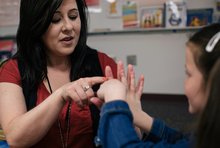
 Shared by Housing Is
on Jun 13, 2019
Shared by Housing Is
on Jun 13, 2019
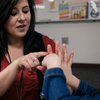
 Shared by Housing Is
on Jun 3, 2019
Shared by Housing Is
on Jun 3, 2019

 Shared by Housing Is
on May 30, 2019
Shared by Housing Is
on May 30, 2019

 Shared by Housing Is
on May 30, 2019
Shared by Housing Is
on May 30, 2019
 Shared by Housing Is
on May 30, 2019
Shared by Housing Is
on May 30, 2019
 Shared by Housing Is
on May 9, 2019
Shared by Housing Is
on May 9, 2019

 Shared by Housing Is
on Apr 30, 2019
Shared by Housing Is
on Apr 30, 2019

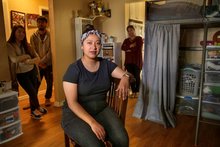
 Shared by Housing Is
on Apr 25, 2019
Shared by Housing Is
on Apr 25, 2019

 Shared by Housing Is
on Apr 24, 2019
Shared by Housing Is
on Apr 24, 2019
 Shared by Housing Is
on Apr 24, 2019
Shared by Housing Is
on Apr 24, 2019
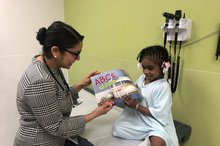
 Shared by Housing Is
on Apr 18, 2019
Shared by Housing Is
on Apr 18, 2019


 Shared by Housing Is
on Apr 4, 2019
Shared by Housing Is
on Apr 4, 2019


 Shared by Housing Is
on Apr 4, 2019
Shared by Housing Is
on Apr 4, 2019




 Shared by Housing Is
on Mar 19, 2019
Shared by Housing Is
on Mar 19, 2019
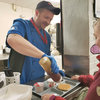
 Shared by Housing Is
on Mar 12, 2019
Shared by Housing Is
on Mar 12, 2019

 Shared by Housing Is
on Mar 11, 2019
Shared by Housing Is
on Mar 11, 2019

 Shared by Housing Is
on Mar 4, 2019
Shared by Housing Is
on Mar 4, 2019
 Shared by Housing Is
on Mar 1, 2019
Shared by Housing Is
on Mar 1, 2019
 Shared by Housing Is
on Mar 1, 2019
Shared by Housing Is
on Mar 1, 2019
 Shared by Housing Is
on Feb 28, 2019
Shared by Housing Is
on Feb 28, 2019

 Shared by Housing Is
on Feb 25, 2019
Shared by Housing Is
on Feb 25, 2019

 Shared by Housing Is
on Feb 25, 2019
Shared by Housing Is
on Feb 25, 2019



